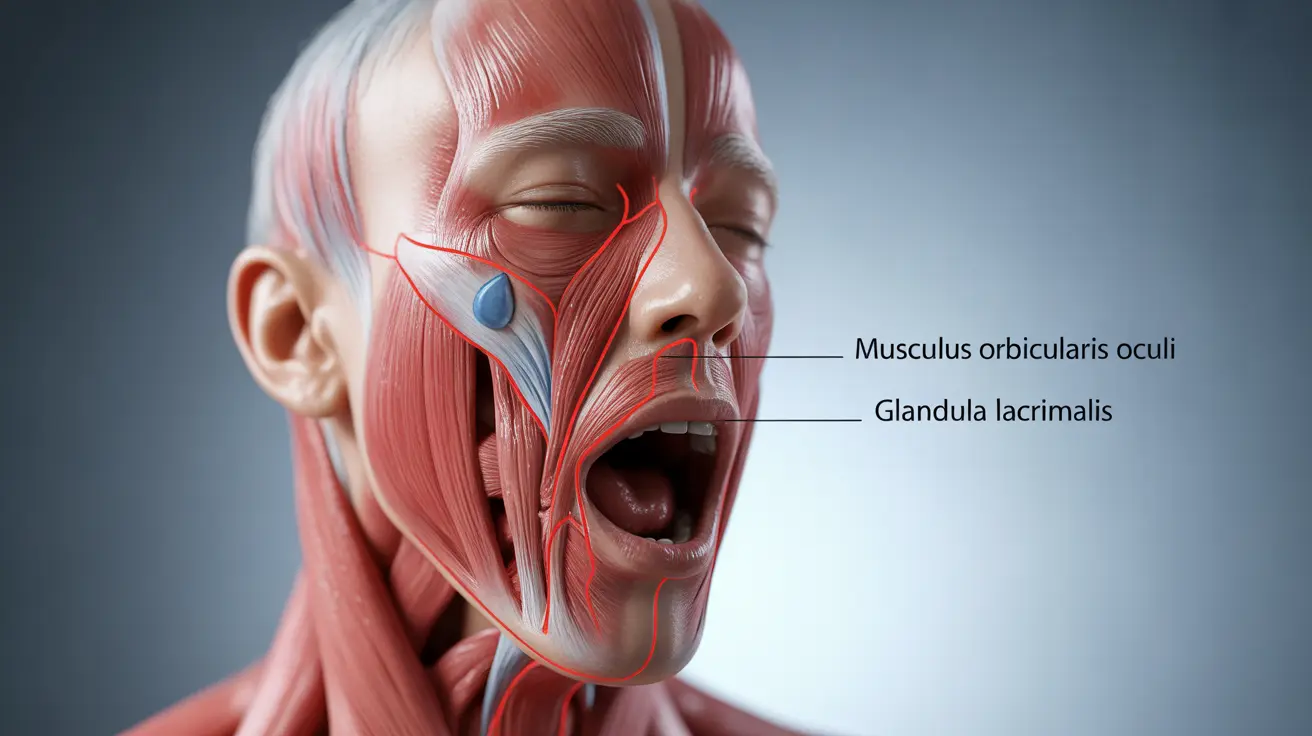Have you ever wondered why your eyes start tearing up every time you yawn? This common phenomenon affects most people and has several interesting scientific explanations behind it. Understanding the connection between yawning and watery eyes can help explain this natural bodily response and determine whether it's cause for concern.
The Science Behind Watery Eyes During Yawning
When you yawn, multiple physiological changes occur simultaneously in your body. The act of yawning involves complex muscle movements that can directly impact tear production and drainage. These mechanisms work together to create the watery eye effect many people experience.
Muscle Compression and Tear Production
During a yawn, the facial muscles around your eyes contract significantly. This contraction puts pressure on your lacrimal glands - the small organs responsible for producing tears. When these glands experience compression, they may release additional tears, leading to watery eyes.
The Role of Facial Nerve Stimulation
Yawning activates the facial nerve (cranial nerve VII), which controls various facial muscles and influences tear production. This nerve stimulation can trigger increased tear production as a reflexive response to the yawning motion.
Physical Factors Contributing to Watery Eyes
Tear Duct Compression
The physical act of yawning can temporarily compress or block the tear ducts, which normally drain excess tears from your eyes. This temporary blockage can cause tears to accumulate and overflow, creating the watery eye effect.
Eye Surface Changes
When you yawn, your eyes often squeeze shut or partially close, which can affect the distribution of tears across your eye's surface. This redistribution can make your eyes appear more watery than usual.
Normal Response vs. Potential Concerns
For most people, watery eyes during yawning is completely normal and not a cause for concern. However, if you experience excessive tearing that persists beyond yawning or notice other unusual symptoms, it's important to monitor these changes.
Signs of Normal Tearing
- Occurs only during the yawn
- Resolves quickly after the yawn
- Affects both eyes equally
- Doesn't cause discomfort or irritation
Frequently Asked Questions
Why do my eyes water when I yawn?
Your eyes water when you yawn because of the compression of tear-producing glands and facial muscles during the yawning motion, combined with temporary changes in tear duct drainage. This is typically a normal physiological response.
Can dry eye syndrome cause excessive tearing when yawning?
Yes, dry eye syndrome can paradoxically cause excessive tearing when yawning. This occurs because dry eyes can trigger reflex tearing, which becomes more noticeable during activities like yawning.
Are watery eyes during yawning a sign of an eye problem or medical condition?
In most cases, watery eyes during yawning are normal and not indicative of an eye problem. However, if you experience excessive tearing at other times or have additional symptoms, consult an eye care professional.
How do facial muscles affect tear production when I yawn?
When you yawn, facial muscles contract and compress the lacrimal (tear-producing) glands. This compression, combined with facial nerve stimulation, can temporarily increase tear production.
What can I do to reduce eye watering when I yawn if it bothers me?
To minimize eye watering during yawning, try yawning with your eyes more open or gently pressing the corners of your eyes while yawning. However, remember that some tearing is normal and generally doesn't require intervention.




